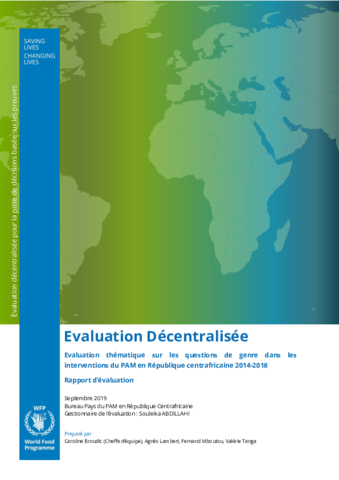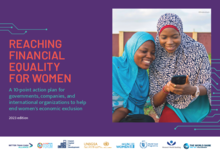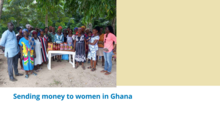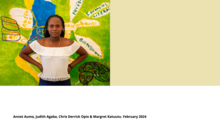
The evaluation was designed according to the following international criteria: relevance, coherence, effectiveness, impact, efficiency and sustainability. However, given its thematic focus, the main aim was to assess the relevance of the interventions with regard to Gender.
Overarching evaluation questions included:
1) In what is the operation relevant to the gender issues?
2) What is the level of achievement of the results expected from the operation in terms of gender equality and empowerment of women?
3) Why and how did the intervention produce the observed results?
4) Are the effects and impacts on gender issues sustainable beyond the lifetime of the intervention?
Some of the activity-specific findings include the following:
• The Cash-Based Transfers (CBT) modality gives women more autonomy and is more rewarding than food distributions by allowing them to choose foods and spread their purchases.
• The Food For Assets (FFA) business has an impact in terms of gender provided that the women beneficiaries are already showing some dynamism (through their organization and support received), that the required development work is not too heavy, that access to land resources is granted, and that of the developed resources have fairly swift return.
• The Purchase For Progress (P4P) activity is more difficult be fully owned by women producers who are poorly organized at their level and have little weight in umbrella organizations, run by men.
Key recommendations from the evaluation included:
• R1: Strengthen in-house capacity and skills in the areas of Protection and Gender.
• R2: Tailor Protection Indicators and data collection & analysis tools to the Central African context.
• R3: Develop a multi-year Gender strategy specific to the context of the Central African Republic.
• R4: Strengthen the capacity of the team in charge of specific activities and NGO partners.
• R5: Reinforce understanding of gender issues in each of the intervention contexts through qualitative analysis.
• R6: Have better consultation and coordination with other stakeholders on the theme of Gender & Food Security.
• R7: Strengthen the monitoring and evaluation system on gender issues.



